Ebola: charity to investigate how British nurse caught the virus
Save the Children will 'leave no stone unturned' as Pauline Cafferkey's condition worsens in London hospital

Save the Children has launched a special investigation into how a British nurse contracted the Ebola virus while working for the charity in Sierra Leone, promising to "leave no stone unturned" in attempting to identify the source of the infection.
Pauline Cafferkey is in a critical condition and being treated in a specialist isolation unit at the Royal Free Hospital in north London. Yesterday, hospital officials said that the nurse's health was continuing to deteriorate despite her receiving an experimental anti-viral drug and blood serum.
The charity's Sierra Leone director, Rob MacGillavray, told the BBC that the investigation would go beyond a standard case review and scrutinise how protective equipment was used, as well as looking at person-to-person contact outside of the hospital where she worked.
Subscribe to The Week
Escape your echo chamber. Get the facts behind the news, plus analysis from multiple perspectives.

Sign up for The Week's Free Newsletters
From our morning news briefing to a weekly Good News Newsletter, get the best of The Week delivered directly to your inbox.
From our morning news briefing to a weekly Good News Newsletter, get the best of The Week delivered directly to your inbox.
"Because of this very serious event we have put in an extraordinary review to ensure that we do everything, leave no stone unturned, to be able to as far as possible identify the source of this infection," he said.
The 39-year old was working alongside a team of British healthcare workers treating infected patients in Sierra Leone's Kerry Town when she contracted Ebola.
She was first diagnosed after returning to Glasgow a week ago, via Morocco and London's Heathrow airport. She was screened for signs of the virus in London, but despite complaining that she felt she was developing a fever, she was allowed to continue her journey to Scotland after several negative tests.
Cafferkey is the first person to have been diagnosed with the disease in the UK, and the second Briton to be treated for Ebola. Nurse William Pooley made a full recovery from the illness last year after receiving the experimental zMapp drug. However, supplies of the drug have now run out.
Her case has raised concerns about Ebola screening at airports, which many argue is ineffective, and has led to calls to impose controversial quarantines for returning healthcare workers.
David Cameron has said he would consider implementing them but the Chief Medical Officer for England, Dame Sally Davies, is believed to be "unconvinced" by such measures, according to the Daily Telegraph. Some fear that quarantines will deter British healthcare workers from volunteering in West Africa , where assistance is still desperately required.
The disease continues to spread in the region, with the World Health Organization recently reporting more than 20,000 cases of the virus and almost 8,000 deaths, mainly in Sierra Leone, Liberia and Guinea, since the outbreak began.
Create an account with the same email registered to your subscription to unlock access.
Sign up for Today's Best Articles in your inbox
A free daily email with the biggest news stories of the day – and the best features from TheWeek.com
-
 'No war is good'
'No war is good'Today's Newspapers A roundup of the headlines from the US front pages
By The Week Staff Published
-
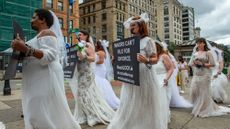 The Week Unwrapped: will the US end child marriage?
The Week Unwrapped: will the US end child marriage?Podcast Why some states have no lower limit on marriage age, plus Black maternal health and the price of olive oil
By The Week Staff Published
-
 Perplexity AI: has Google finally met its match?
Perplexity AI: has Google finally met its match?In The Spotlight Generative AI start-up provides fast, Wikipedia-like responses to search queries
By Chas Newkey-Burden, The Week UK Published
-
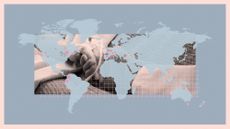 In what countries is assisted dying legal or in consideration for being made legal?
In what countries is assisted dying legal or in consideration for being made legal?In the spotlight More countries are granting more people the right to die
By Devika Rao, The Week US Published
-
 Nigeria's worsening rate of maternal mortality
Nigeria's worsening rate of maternal mortalityUnder the radar Economic crisis is making hospitals unaffordable, with women increasingly not receiving the care they need
By Harriet Marsden, The Week UK Published
-
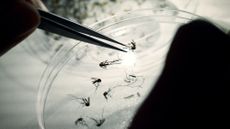 Dengue hits the Americas hard and early
Dengue hits the Americas hard and earlySpeed Read Puerto Rico has declared an epidemic as dengue cases surge
By Peter Weber, The Week US Published
-
 How happy is Finland really?
How happy is Finland really?Today's Big Question Nordic nation tops global happiness survey for seventh year in a row with 'focus on contentment over joy'
By Harriet Marsden, The Week UK Published
-
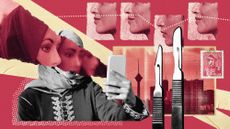 How Tehran became the world's nose job capital
How Tehran became the world's nose job capitalUnder the radar Iranian doctors raise alarm over low costs, weak regulation and online influence of 'Western beauty standards'
By Harriet Marsden, The Week UK Published
-
 Africa's renewed battle against female genital mutilation
Africa's renewed battle against female genital mutilationUnder the radar Campaigners call for ban in Sierra Leone after deaths of three girls as coast-to-coast convoy prepares to depart
By Harriet Marsden, The Week UK Published
-
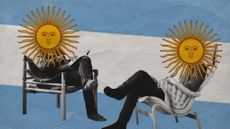 Argentina: the therapy capital of the world
Argentina: the therapy capital of the worldUnder the radar Buenos Aires natives go hungry to pay for psychoanalysis, amid growing instability, anxiety – and societal acceptance
By Harriet Marsden, The Week UK Published
-
 Does declining birth rate spell doom for Britain?
Does declining birth rate spell doom for Britain?Today's Big Question Ageing population puts pressure on welfare state, economy and fabric of society, while fertility is rising on populist agendas
By Harriet Marsden, The Week UK Published